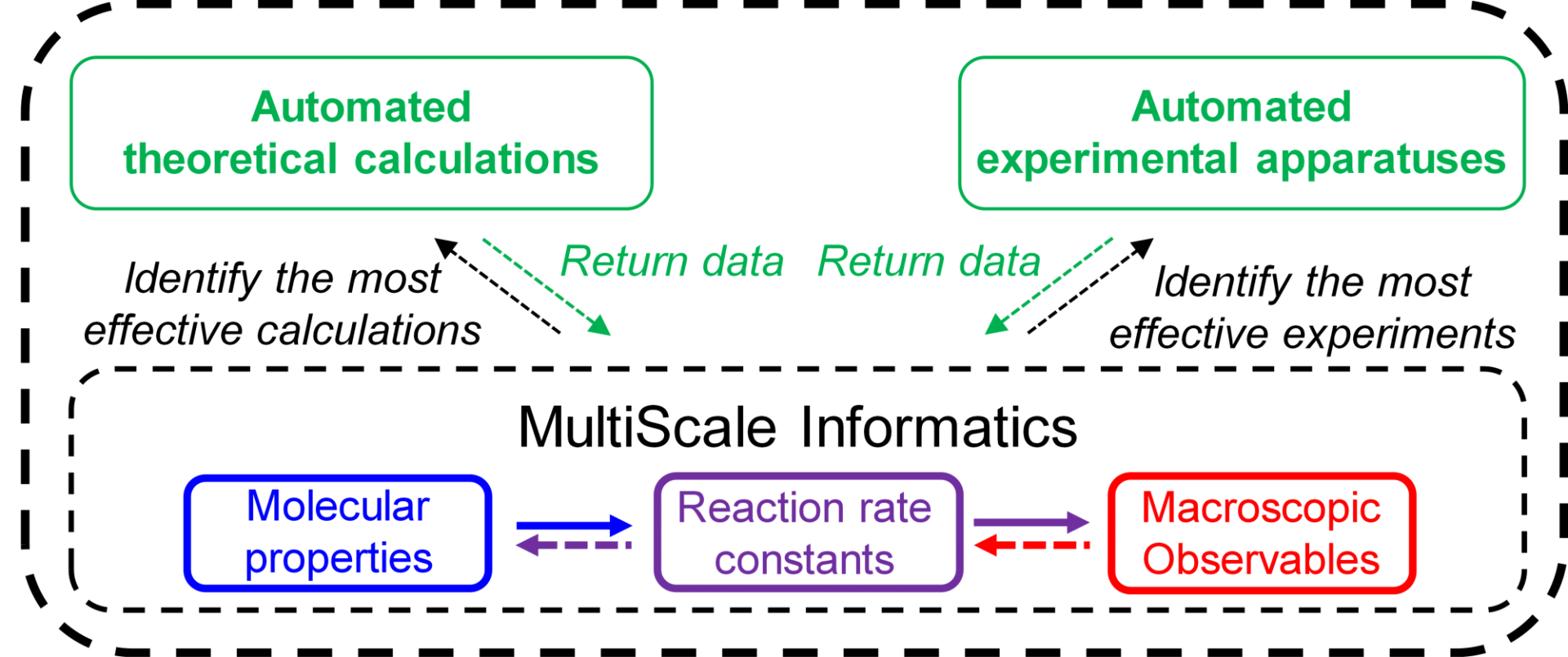Under the current paradigm in the field, the task of producing a validated, high-accuracy model for fuel oxidation presently comprises an enormous, time-consuming community effort. In highly simplified terms, modelers might assemble and optimize/validate a model against available data and might highlight where new data are needed for future model improvement, experimentalists might test the accuracy of existing models and provide new data for use in assembling and optimizing/validating future models, and theorists might calculate rate constants for reactions for use in assembling future models. Given typical timescales for experimental, theoretical, and modeling research and typical timescales for information dissemination through conferences and archival publications, the typical timescale of one iteration of model improvement is on the order of several years.
Complete automation of the entire process, a "robotic scientific community" (loosely speaking), offers potential for a different paradigm with a much faster timescale for model improvement. Namely, the combination of automated design of experiments, automated experiments for data gathering, automated analysis of gathered data, and the associated software and hardware to link them together allows for entirely autonomous scientific inquiry. Combining automated frameworks for multi-scale information processing and automated experiments for information gathering allows one to "close the loop" for entirely automated model improvement. We are also collaborating with Richard West’s group at Northeastern to link this autonomous system to tools for automated trial model creation and theoretical calculations for full automation of model creation and selection, generation, and integration of theoretical and experimental data. Given typical timescales for certain combustion experiments and data analysis/experimental design procedures, the timescale of one iteration of model improvement would be reduced from years to minutes or hours.

Our group’s efforts in the creation and continual improvement of automated information processing and automated experiments are building toward this vision. Closing the loop involves stitching our computational and experimental strategies together to serve as a demonstration of cyber-physical systems for rapid, autonomous scientific inquiry—accelerating the pace of scientific progress in the development of predictive models for fuel oxidation processes relevant to increasing fuel efficiency and decreasing formation of harmful pollutants.